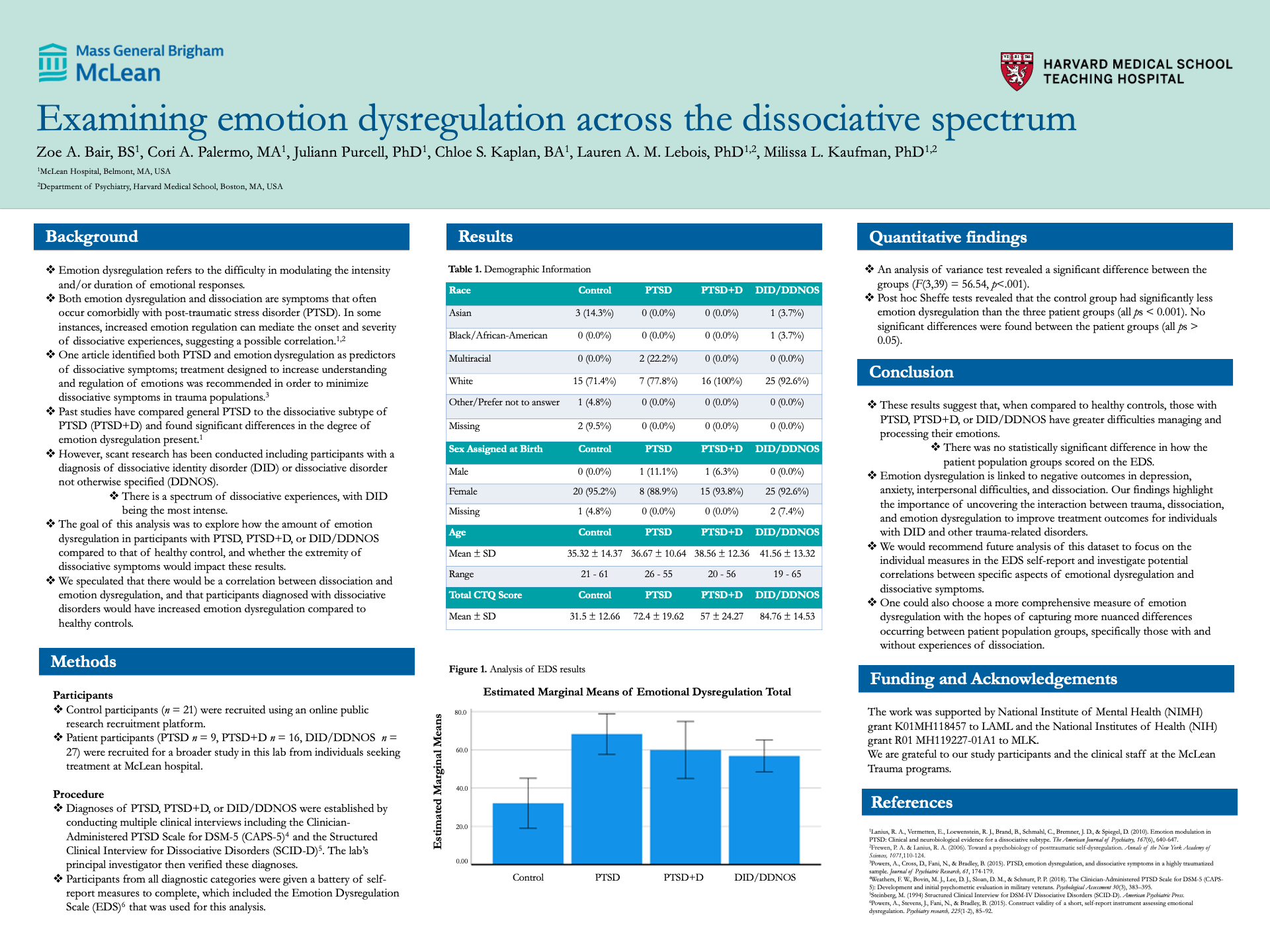Scientific Abstract
Background: Emotion dysregulation (ED) and dissociation are both symptoms often found in people with post-traumatic stress disorder (PTSD). In some instances, more adaptive emotion regulation strategies can have an inverse correlation with the onset and severity of dissociative experiences. Studies have examined ED in PTSD compared to PTSD + dissociation (PTSD+D), yet there is scant research that includes participants with a dissociative identity disorder (DID) diagnosis. There is a spectrum of dissociative experiences, with DID being the most intense. This exploratory analysis sought to compare the ED of participants with PTSD, PTSD+D, or DID, to that of healthy controls. We speculated that there would be a correlation between dissociation and ED, and that participants diagnosed with dissociative disorders would have increased ED.
Methods: Control participants (n = 20) were recruited via an online public research recruitment platform. Patient participants (PTSD n = 9, PTSD+D n = 16, DID n = 27) were recruited from individuals seeking treatment at McLean Hospital. The PTSD Scale for DSM-5 (CAPS-5) and the Structured Clinical Interview for Dissociative Disorders (SCID-D) were administered to establish diagnoses of PTSD, PTSD+D, or DID, which were then verified by the lab’s principal investigator. Participants completed self-report measures including the Emotion Dysregulation Scale (EDS).
Results: An analysis of variance test revealed a significant difference between the groups (F(3,39) = 56.54, p<.001). Post hoc Sheffe tests revealed that the control group had significantly less emotion dysregulation than the three patient groups (all ps < 0.001). No significant differences were found between the patient groups (all ps > 0.05).
Conclusions: Results suggest that, when compared to healthy controls, those with PTSD, PTSD+D, or DID have greater difficulties managing their emotions. ED is linked to negative outcomes such as depression, anxiety, and interpersonal difficulties. Our findings highlight the importance of uncovering the interaction between trauma, dissociation, and ED to improve treatment outcomes for individuals with DID and other trauma-related disorders.
Search posters

